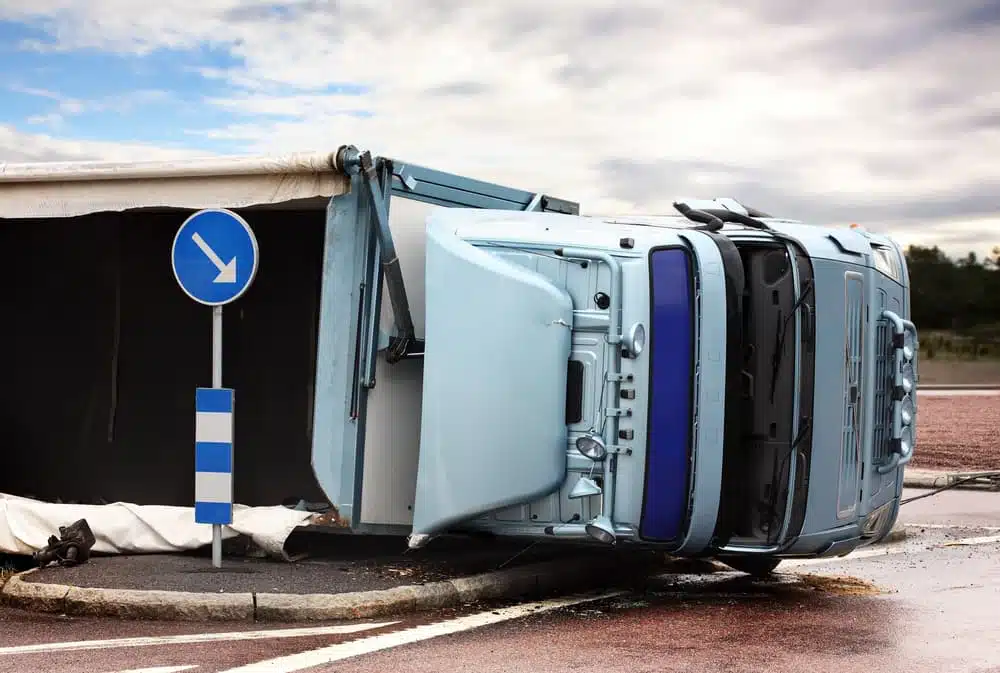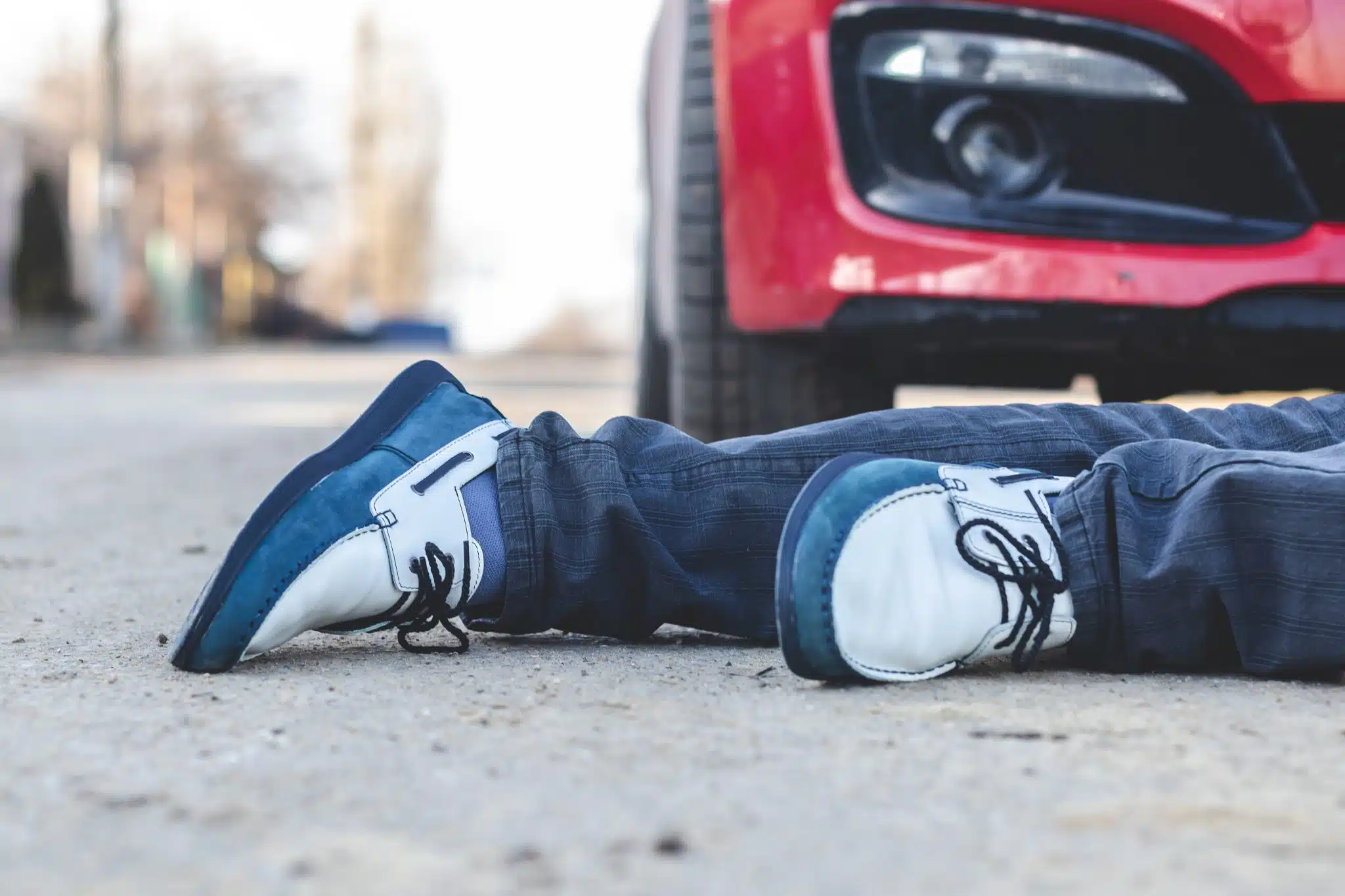
If you were injured in a trucking accident, you might feel unsettled by lingering doubts about how it happened. It is natural to ask, “What if I am partly to blame?” No one deserves to suffer because of another party’s negligence, and if a trucking company or driver acted carelessly, that wrongdoing should not be overshadowed by a minor error on your own part.
After a catastrophic collision with a large commercial truck, it is not unusual to replay the moments before impact over and over again, second-guessing every decision made on the road. Perhaps you remember changing lanes when you were unsure if it was entirely safe, or maybe you were momentarily distracted by something inside your vehicle. In the wake of severe injuries, lost wages, and mounting medical bills, these thoughts can feel overwhelming.
These issues can be incredibly complex, especially when facing powerful trucking companies and their insurers. You deserve understanding, compassion, and a chance to hold all at-fault parties accountable. An experienced truck accident lawyer at The Rothenberg Law Firm will help protect your rights, level the playing field, and work to maximize your financial recovery.
Truck Collisions versus Motor Vehicle Accidents
Trucking accidents are not like typical car accidents. The size and weight of a commercial truck can turn what would be a fender-bender into a life-changing event. Serious injuries, extensive property damage, and even the loss of loved ones are devastating realities that follow these collisions.
The people injured in these crashes often face steep challenges during their physical and emotional recovery. Large trucking companies have the resources to push back hard on claims. They may try to shift blame onto injured drivers to limit their payouts. Navigating these legal and emotional hurdles is not something you need to do alone.
Those nagging questions about your role in the crash do not mean you lose the right to pursue compensation. If you are partly at fault, it may affect how much you can recover, but it does not necessarily prohibit it.
Understanding Comparative Negligence and What Happens if You Are Partly at Fault
The legal concept called “comparative negligence” comes into play when multiple parties share responsibility for an accident. The Rothenberg Law Firm Accident and Injury Lawyers has offices in New York, Pennsylvania, and New Jersey. Every state handles comparative negligence in its own way. Some allow you to recover damages even if your actions contributed to the crash, while others limit recovery if your share of fault passes a certain threshold.
Under these rules, a jury or court divides fault into percentages. If you bear some percentage of responsibility, your compensation may be reduced by that amount. This is not as simple or clear-cut as it sounds. Real cases involve detailed legal arguments, negotiations, and evidence. The specifics depend heavily on the state where your accident took place and the facts of your case.
One vital point: Being partly at fault does not mean you are barred from recovering compensation. Comparative negligence laws are designed to address situations where the fault is shared. Trucking accidents are rarely straightforward.
Commercial drivers, trucking companies, cargo loaders, and maintenance crews often play roles in creating unsafe conditions that lead to these devastating collisions. Even if you think you might have made a small error, that does not erase the negligence of the trucking company or driver.
Federal Regulations Affecting Liability in Trucking Accidents
Trucking accidents do not occur in a vacuum. They often involve interstate commerce and large trucking companies that must comply with federal regulations. The Federal Motor Carrier Safety Administration (FMCSA) sets rules that govern the trucking industry across the United States.
These federal rules address various aspects of the trucking industry:
- Hours of Service: Truck drivers must limit their hours on the road to reduce fatigue. If a driver ignores these rules or if the trucking company pressures drivers to exceed limits, the resulting fatigue could lead to dangerous driving behaviors.
- Drug and Alcohol Policies: Regular testing and strict enforcement of zero-tolerance policies for drug or alcohol use among drivers are mandatory. Violations can strongly support a negligence claim.
- Vehicle Maintenance and Inspections: Trucks must be regularly inspected, maintained, and repaired. Any sign of skipped maintenance or ignored safety warnings can point to liability on the trucking company’s part.
- Cargo Securement: Improperly loaded or unsecured cargo can shift during transit, causing the driver to lose control or the load to spill onto the roadway. Verifying that cargo was loaded according to FMCSA standards can be a key factor in a legal claim.
- Driver Qualifications: Truck drivers must hold valid commercial driver’s licenses, meet specific medical standards, and receive adequate training. Hiring an unqualified or medically unfit driver can place liability squarely on the trucking company.
If any of these rules were broken, your lawyer can highlight these violations. By doing so, they emphasize that the trucking company had a legal responsibility to keep the public safe, failed to do so, and contributed to the cause of your accident.
This can help shift the focus away from any minor misstep you might have made and toward the negligent conduct of those who wield enormous control and responsibility in the trucking industry.
The Trucking Company’s Responsibility for Safety and Fault
Commercial trucking companies generally carry large insurance policies because of the size and potential damage their vehicles can cause. They have legal obligations that go beyond a typical driver’s responsibility, including proper hiring practices, driver training, supervision, adherence to maintenance and inspection routines, and strict compliance with all federal and state regulations.
When a collision occurs, the question arises: Did the company do everything required to prevent this crash?
Trucking companies often respond to claims by immediately sending investigators and legal representatives to the scene. They may attempt to shift blame onto the injured party or claim that something else caused the accident.
How a Truck Accident Lawyer Helps Level the Playing Field
Trucking companies and their insurers know how to protect their bottom line. They have extensive legal resources and may exploit every opportunity to minimize or deny claims. Without legal help, it can feel like facing a well-prepared, heavily financed opponent on your own.
A truck accident attorney who has handled numerous similar cases helps level the playing field. From the moment you consult with an attorney, you gain a legal ally who can take the following actions, among many others:
- Thorough Investigation: A law firm can tap into decades of combined experience to investigate the accident scene, gather evidence, interview witnesses, and work with crash reconstruction professionals. They can identify whether the truck driver was fatigued, speeding, or violating federal regulations. Detailed records about the truck’s maintenance, the driver’s logbooks, and the company’s hiring and training practices can come to light.
- Handling Insurers: Insurance companies representing large trucking firms often try to pressure injured parties into low settlements. A lawyer with extensive experience in motor vehicle accidents can handle these discussions, pushing back against unfair tactics and refusing to let insurance companies take advantage of you.
- Establishing Liability: Proving fault in a trucking accident is not just about showing that a driver made a mistake. It can involve multiple parties—drivers, trucking companies, and even manufacturers of truck parts. An attorney can carefully piece together liability, helping ensure that all responsible parties are held accountable.
- Negotiation and Litigation: If trucking companies or their insurers refuse to offer a fair settlement, a dedicated truck accident lawyer can file a lawsuit and take the case to trial. The preparation, from building a robust case file to lining up credible witnesses, can shift the leverage in your favor.
- Reducing Your Percentage of Fault: If you fear that you share some responsibility for the accident, an attorney’s efforts to highlight the trucking company’s wrongdoing and the driver’s negligence can help reduce the proportion of blame assigned to you. This can significantly impact how much compensation you recover.
Trucking cases often require rigorous legal work. The Rothenberg Law Firm Accident and Injury Lawyers has over 50 years of experience advocating for injured victims, obtaining billions in compensation. Truck accident litigation is a complex area that demands a dedicated legal approach. Having a lawyer handle negotiations and legal filings can relieve the burden you face while coping with injuries and medical treatments.
State-Specific Statutes of Limitations for Truck Accident Claims
Time limits, called statutes of limitations, govern how long you have to file a personal injury claim. If you do not file within these timeframes, you could lose your right to pursue compensation for your injuries.
- New York: Generally, you have three years from the date of the accident to file a personal injury claim against a negligent party in New York. This timeframe can apply to truck accident claims as well.
- Pennsylvania: In Pennsylvania, you generally have two years from the date of the accident to file your claim.
- New Jersey: New Jersey also typically sets a two-year statute of limitations for personal injury claims arising from accidents. The clock usually starts on the date of the crash.
Reporting an accident to the proper entities after consulting with an attorney is part of protecting your rights. Acting within the legal deadlines ensures your claim can move forward, gives your lawyer time to build a strong case, and allows negotiations or litigation to proceed without unnecessary hurdles. Waiting too long can make it harder to prove your case, as evidence can be lost, or memories may fade.
Building a Strong Claim When Partial Fault Might Exist
Building a strong claim when there is a possibility you share some fault is about gathering all available evidence. This can include:
- Police Reports and Accident Reconstruction: Accident investigators may piece together exactly how the crash occurred, offering scientific analysis that considers all parties’ actions.
- Electronic Logging Devices (ELDs) and GPS Data: Commercial trucks often have electronic devices tracking the driver’s hours and vehicle movements. These records can show speeding, harsh braking, or other driving patterns that indicate negligence.
- Maintenance and Inspection Records: Reviewing company records can reveal patterns of delayed repairs or ignored maintenance issues that could have caused or worsened the crash.
- Witness Statements: Bystanders or other drivers may have seen the truck swerving, speeding, tailgating, or otherwise driving aggressively.
- Surveillance and Traffic Camera Footage: Video evidence can provide an unbiased visual record of the moments before impact. Camera footage might show the truck drifting across lanes or failing to brake properly.
Careful, diligent investigation helps highlight the trucking company’s wrongdoing. This reduces your potential share of fault and can lead to a better financial recovery.
Medical Bills, Lost Wages, and the Full Scope of Damages
A truck accident can leave you with severe injuries, ongoing medical treatments, and physical therapy sessions. The recovery process may interfere with your ability to return to work, resulting in lost wages. Emotional trauma, pain and suffering can also weigh heavily on your life. When seeking compensation, these damages factor into the value of your claim.
Trucking companies and insurers may attempt to minimize medical expenses, argue that certain treatments were unnecessary, or trivialize the emotional impact of severe injuries. A lawyer can present detailed medical records, expert medical testimony, and evidence of how the injuries have affected every aspect of your life. This comprehensive approach counters attempts to minimize your losses.
By conducting a thorough analysis of all current and future expenses, a claim can be built to seek fair compensation. Whether it’s for ongoing rehabilitation, specialized medical equipment, home modifications, or therapy for emotional trauma, every aspect of your suffering can be brought into the calculation. Addressing these issues ensures that any settlement or verdict accounts for the real effects of the crash, not just the immediate medical bills.
Compensating for the Emotional and Psychological Aftermath
In addition to your physical injuries, a trucking crash can take a heavy toll on your emotional well-being. Anxiety, depression, post-traumatic stress, and a sense of vulnerability can linger long after physical wounds begin to heal.
It might feel unsettling to face legal battles while trying to regain emotional stability. Having a trusted legal team on your side can offer peace of mind. Knowing that someone is advocating for your rights, gathering evidence, and pushing back against insurer tactics allows you to focus more on recovery.
The legal process is often lengthy. Patience is required. However, consistent communication from your attorney about the case’s progress, explanations of legal steps, and ongoing support can reduce stress. This compassionate legal advocacy aims not only to secure financial compensation but to acknowledge and address the complex human factors that follow a major crash.
While money cannot erase the trauma of a catastrophic truck wreck, fair compensation helps cover medical bills, supports your family as you recover, and provides a measure of justice. If you fear partial blame in the crash, remember that skilled legal representation can mitigate that issue, highlight the trucking company’s negligence, and help you move forward.
Contact The Rothenberg Law Firm Accident and Injury Lawyers
Accidents happen quickly, and it’s natural to replay events in your mind. Yet this does not mean you deserve less than what the law allows. Comparative negligence rules in New York, Pennsylvania, and New Jersey are designed to address real-world situations where blame is shared. Federal regulations set strict standards for trucking companies, and any violations can strengthen your claim.
Trucking companies and their insurers may try to shift the spotlight onto your actions, but a strong legal strategy can refocus attention on their negligence. Your path to financial recovery and accountability does not vanish if you share a small portion of fault. The legal system allows for the complexity of real-world crashes, and with the right guidance, you can pursue compensation that recognizes the severity of your injuries and the wrongdoing of those truly responsible.
The Rothenberg Law Firm Accident and Injury Lawyers’s presence in New York City, Brooklyn, Philadelphia, Cherry Hill, Lakewood, Monsey, and Hackensack means convenient access to dedicated legal representation. We offer a free consultation and case evaluation. Call our personal injury lawyers at 800-624-8888 or contact us online to get started.




